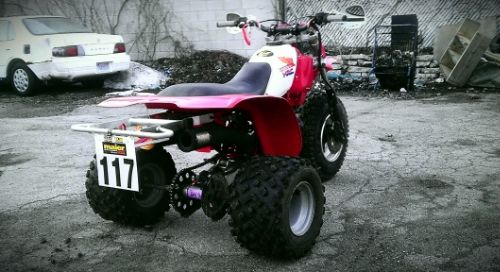So, Jeffie and I were talking about my hub spacers and using them with camber shims. And it got me thinking about our suspensions geometry. In theory, if you use a full contact camber shim on the hub, It can cause undesired toe changes during suspension travel? Since the axle's pivot point is forward of the rear wheel, this makes sense in my head and doesn't sound good for tire life in the long run..
How much rotation do you think is applied to the hub during rear suspension travel? Do you think it is enough to cause unwanted toe changes, even if only for a second or two? Does anyone even understand what I'm asking?

Hopefully this turns into a worthwhile discussion for myself and other members

To clarify the way it was explained to me, A clock hand rotating around the pivot point is similar to our rear arms...The camber shim is mounted on the end of this, meaning it will rotate and change geometry/camber/toe as it's being put under load. In my mind, this will not be very effective in the long run... Probably great for a car that only gets out to shows, but not that great for a functional car as it will be constantly changing...When the suspension is compressed, the leading edge of the tire will toe in slightly, and the opposite when extended...Because the camber shim will rotate with the hub mounting point at the end of the axle. I know it is probably not a huge change, but undesired none the less..

in theory, you're mounting point will already be canted and potentially cause a toe issue if the car has been lowered from it's stock stance.
I don't know that the suspension will compress enough to cause a dramatic toe change during even hard driving.

That's kinda what I'm thinking, But I'm also thinking why bother taking the chance? If it is something that in theory could screw you out of optimal vehicle control and tire life, why bother?

if the toe change is not dramatic though, the increased camber may be more beneficial than the drawback of small toe changes.

You could do some simple math here. figure out full compression (well the change between normal and full compression) and the length between the center of the hub and the pivot point. Then use inverse sine to get the angle. Divide that angle by 90 and that will give you a percent, multiply that percent by the angle of camber you added and thats your toe change.
1994 Saturn SL2 Home Coming Edition: backup car
2002 Chevy Cavalier LS Sport Coupe: In a Junk Yard
1995 Mazda Miata R-package Class=STR
Sponsored by:
Kronos Performance
WPI Class of '12 Mechanical Engineering
WPI SAE Risk and Sustainability Management Officer
The toe change probably isn't significant enough to amount to even be measureable, but considering it's the outside tire under compression, and the toe change would be negative, it's not a bad thing.









